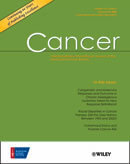by
Olga Deshchenko, DOTmed News Reporter | June 15, 2010

Costs of care affect access
for cancer survivors
More than two million people, or 18 percent of U.S. cancer survivors, reported refraining from one or more needed medical services because of cost concerns, according to a new study.
Researchers found that in the past year, the pervasiveness of forgoing health care services due to cost concerns among cancer survivors was 7.8 percent for medical care, 9.9 percent for prescription medications, 11.3 percent for dental care and 2.7 percent for mental health care.
Kathryn Weaver, study author and assistant professor of public health at the Wake Forest University Baptist Medical Center told DOTmed News that it is a well-known fact that financial costs of cancer treatment and diagnosis can have adverse effects on cancer survivors.



Ad Statistics
Times Displayed: 1581
Times Visited: 8 Keep biomedical devices ready to go, so care teams can be ready to care for patients. GE HealthCare’s ReadySee™ helps overcome frustrations due to lack of network and device visibility, manual troubleshooting, and downtime.
"What we didn't know was how this negative financial impact might impact their future ability to access medical care services," said Weaver. "What we decided to do was look at data from a national survey of U.S. adults and to specifically compare adults who reported that they had a history of cancer compared to adults without a history of cancer," she said.
The study, published in Cancer, a peer-reviewed journal of the American Cancer Society, used the results of the annual U.S. National Health Interview Survey (NHIS) from 2003 to 2006, a nationwide survey of approximately 30,000 to 40,000 households used for trends and disability tracking. The study included data from 6,602 adult cancer survivors and 104,364 individuals with no cancer history.
The study found that cancer survivors under 65 years of age were 55 percent more likely to delay or avoid all types of medical care than those in the same age group with no history of cancer. Researchers also found some differences among racial groups.
"Hispanic and black cancer survivors were more likely to not get prescription medications and dental care," said Weaver. "Hispanic survivors were also more likely to report that they didn't get medical care."
Weaver said the study illustrates the importance of tracking the health of cancer survivors long after diagnosis. In the future, it will be important to ask survivors about their particular reasons for forgoing medical care, she said.
"On average, our survivors were more than eight years after their cancer diagnosis," said Weaver. "I think it really brings attention to the need to study cancer survivors and their ongoing health."
Weaver said it will be interesting to see how these findings might change over time in light of health care reform. The study highlights the need for providers and survivors to discuss the financial aspects of medical services associated with cancer, she said.
"I suspect that many providers don't know that cancer survivors are not getting care and that perhaps if they were made aware of that, they could help link survivors with resources that would help them afford medical services," said Weaver, "or they could even suggest more economical treatments that might be just as good but would result in fewer expenses for the survivors," she said.
The study titled, "Forgoing medical care because of cost: assessing disparities in health care access among cancer survivors in the United States," was published in Cancer online Monday.

